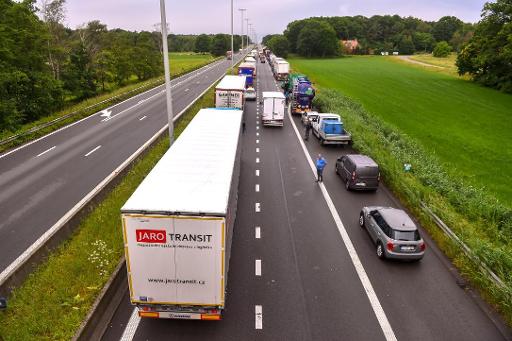The number of traffic jams on Belgian roads has fallen over the first half of the year in comparison to the same period in 2018, according to the latest barometer prepared by Touring Mobilis and Be-Mobile.
It is the first time since 2015 that a decrease has been recorded. Touring cannot say this is a consistent trend yet, as the figure is too small. Besides, congestion on the roads is still too big an issue.
A decrease has also been recorded in slack periods. However, Touring emphasises that the amount of time spent delayed in traffic jams is much higher than in 2015.
The barometer collates the amount of time per unit of distance spent by drivers in queues of traffic. For example, in the first half of 2019, a total of 790.1 hours per 100 kilometres of road congestion was registered. In the first half of 2018, it still stood at 848.3 hours.
When the distance recorded is between 100 and 250 kilometres, Touring speaks of structural traffic jams, encountered every morning and evening during rush hours. When it is 300 kilometres or more, it becomes exceptional congestion, caused by adverse weather conditions or accidents. The worst day to date was Monday, January 28, as a consequence of snow- or rainfall, with a 424-kilometre long traffic jam.
According to Touring, infrastructure investment (e.g. safer cycle paths, lessening bottleneck congestion) and measures to persuade citizens to choose alternatives have had an impact on improving the bottleneck situation. "It is undeniable that more and more people are opting for bikes or mopeds to avoid queues. The mild spring may also explain the decrease," Touring explained.
The Brussels Times

